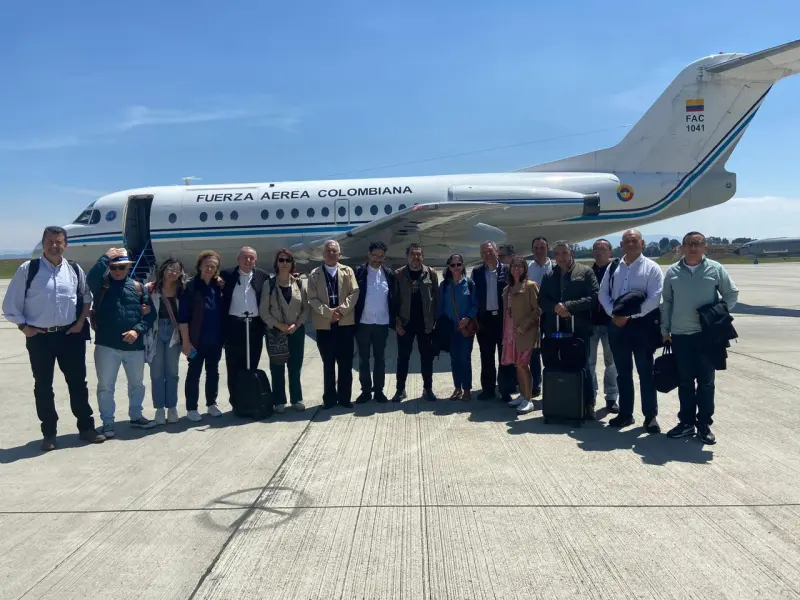The two sides have begun a new round of talks in Caracas on 20 May 2024, with the commitment to sign an agreement amid the recent tensions, after the subversive group announced that it had ended its suspension of economic kidnappings.
The parties have formally resumed negotiations in Venezuela, the guarantor of the process. They are thus giving continuity to the agreements reached on 22 April. The aim is to sign an agreement on the first point on the agenda: the participation of society in building peace. The dialogue will continue until 25 May, although the topics to be discussed and the exact date for the signing of the agreement have not yet been determined. This agreement is based on a proposal drawn up by the National Participation Committee, which gathered the opinions of 8,000 people in 78 meetings.
Key point: Civil society participation in the peace process
The government and ELN delegations are close to signing the first item on the agenda for the talks, an agreement on civil society participation in the peace process. This point will be discussed during the meeting to be held in Venezuela from 20 to 25 May. The basic document for the meeting has been prepared since August 2023 by the National Participation Committee, which has held 78 meetings with representatives from 30 sectors and more than 8,000 people from 3,132 social organisations. The axes of social participation focus on the political regime, the economic model and the environmental situation. During these meetings, a series of transformations were defined that will guide the process once the Pact is signed.
Proposed transformations
With regard to the political regime, the aim is to transform the organisation of the state in order to establish a full democracy, reform the electoral system, and eliminate corruption and alliances with criminal groups and drug traffickers. In the economic sphere, it will promote models of production and distribution of wealth that are not based on exploitation, as well as the integration of informal work and the eradication of the black economy. With regard to the environment, it proposes a territorial reorganisation focused on the protection of water, biodiversity and life, including the implementation of the Escazú Agreement and the transition from mining to energy.
Criticism and changes to the draft
Since the draft was published, criticism has come from some sectors within the National Participation Committee. The parties are analysing and discussing these comments with a view to making changes to the participation model. Business representatives have expressed doubts about the draft and have requested that their views on the binding nature of participation be taken into account. It is hoped that these requests and comments will be taken into account during the meeting, with the aim of arriving at a final document that guarantees the active, proactive, inclusive, effective and binding participation of all civil society.
Prospects and conclusion of the agreement
The government delegate, Iván Cepeda, has confirmed that he is in Caracas to reach an agreement. The first item on the agenda is expected to be signed on 25 May, marking the formal start of civil society’s participation in the process until May 2025, and the participants’ contributions will form a transformation plan that will define the changes needed to overcome the armed conflict in the country.










